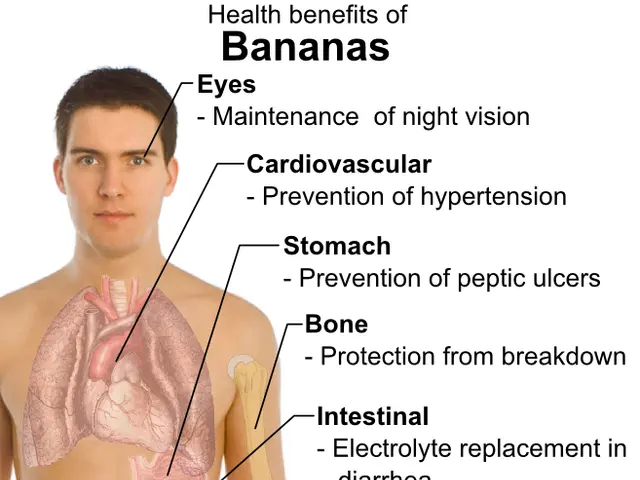Improved Brain Health: Adopting the Mediterranean Diet and Maintaining an Active Lifestyle Could Offer Protection
Unleashing the Power of MedWalk: Marrying the Mediterranean Diet with Walking for Brain Health
Scientists have embarked on an innovative study titled "MedWalk," exploring the collective impact of a Mediterranean diet and regular walking on dementia and cognitive decline. By combining these two established brain health boosters, researchers hope to achieve more than what each can deliver independently.
Initiated pre-pandemic, this study has faced setbacks but remains undeterred. With researchers hailing from Australia, New Zealand, and the United Kingdom, they recently shared their methodology and ongoing analysis in the prestigious Journal of Alzheimer's Disease.
Originally devised as a 2-year study, the COVID-19 pandemic forced modifications. The follow-up period has been trimmed to a year, while recruiting a broader range of participants has been prioritized.
The primary focus of the study is identifying a 12-month change in visual memory and learning among the participants. But the research doesn't stop there. The team also seeks to observe the intervention's effect on mood, quality of life, health costs, cardiovascular health, arterial stiffness, and multiple other aspects.
The study enlists participants aged 60 to 90 from the Australian states of South Australia and Victoria. These individuals reside in independent living retirement communities, with some recruited during the pandemic's impact on the broader community.
The research interest lies in monitoring biomarkers associated with cognitive decline, such as glucose regulation, inflammation, nutrients, and oxidative stress.
Participants are randomly assigned to either the MedWalk intervention group or a control group that maintains its usual diet and activity levels. The intervention combines dietary modification and a supervised walking regimen, fortified with psychosocial behavioral change techniques. The first 6 months witness intensive support, followed by another 6 months of assistance to maintain participant adherence.
Researchers offer instruction on the differences between a Mediterranean diet and a typical Australian diet. Special provisions include offering extra-virgin olive oil and other Mediterranean diet-friendly foods to the participants, ensuring they understand and embrace the Mediterranean lifestyle. After an initial assessment of aerobic fitness, participants engage in group walking sessions for the first 6 months and monthly sessions thereafter.
My Two Cents:
Certified nutritionist Conner Middelmann, not affiliated with the study, sheds light on the potential benefits of the Mediterranean diet for brain health. Multiple studies suggest a relationship between the Mediterranean diet and a reduced risk of dementia, Alzheimer's disease, and cognitive decline. The diet's antioxidant-rich components, omega-3 fatty acids, fiber, and low processed grain and sugar intake are thought to contribute to these benefits.
Regular walking is also associated with slower cognitive decline. A study found that taking 10,000 steps a day could lower the risk of dementia by half. Moreover, walking is believed to improve brain blood flow, promote cognitive function, reduce stress, and enhance feelings of well-being.
By combining the Mediterranean diet and walking, the MedWalk intervention presents a compelling approach to maintaining and improving cognitive health. With further insights from the current study, we will learn the full extent of the combined effect on dementia and cognitive decline.
- Dementia and cognitive decline may be delayed based on the collective impact of a Mediterranean diet and regular walking, as investigated in an innovative study titled "MedWalk".
- Conner Middelmann, a certified nutritionist, emphasizes the potential benefits of the Mediterranean diet for brain health, suggesting reduced risks of dementia, Alzheimer's disease, and cognitive decline.
- Regular walking has also been linked to slower cognitive decline, with one study finding that taking 10,000 steps a day could decrease the risk of dementia by half.
- Ideally, by adopting a Mediterranean diet and incorporating regular walking into their lifestyle, persons may boost their cognitive health.
- Science and health-and-wellness enthusiasts eagerly await the findings from the MedWalk study to gain insights into the full extent of the combined effect on dementia and cognitive decline.
- A healthy diet rich in antioxidants, omega-3 fatty acids, fiber, and low in processed grains and sugar, combined with fitness-and-exercise like walking, may contribute to optimal brain health and overall well-being.








